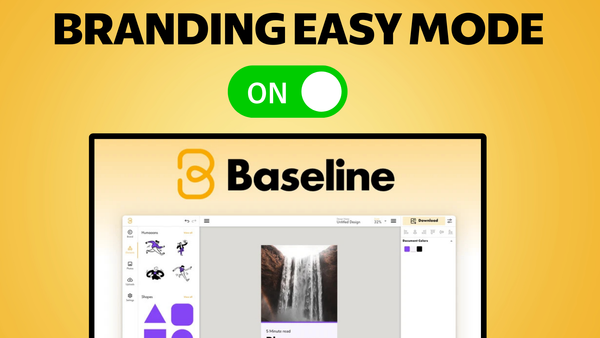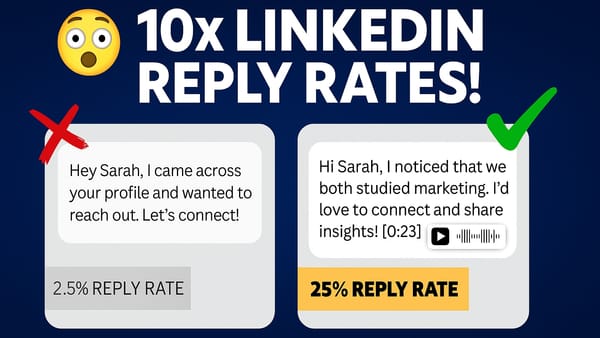Building A Black Friday Deals Page
Learn how to build a dynamic Black Friday deals page in WordPress using custom post types, advanced fields, and efficient data management techniques.

Introduction [00:00]
In this comprehensive guide, we’ll explore the process of creating a dynamic and user-friendly Black Friday deals page using WordPress and various plugins. The content is based on a live stream where an experienced developer shares insights on building a sophisticated deals platform. We’ll delve into the use of custom post types, advanced custom fields, dynamic content generation, and efficient data management techniques. This guide is perfect for WordPress developers and site owners looking to create a robust, scalable solution for showcasing deals and product information. Whether you’re preparing for Black Friday or building a year-round deals platform, this tutorial will provide valuable insights into leveraging WordPress’s capabilities to create a powerful, data-driven website.
The Black Friday deals page project was born out of a desire to create a more organized and user-friendly approach to presenting deals compared to the typical long lists of offers found elsewhere. The developer’s goal was to provide a platform where users could easily sort, filter, and save deals they’re interested in, offering a more tailored experience during the hectic Black Friday shopping period.
Get RestreamKey features of the project include:
- Custom post types for deals and products
- Advanced custom fields for detailed information
- Dynamic content generation using Elementor and plugins
- User account functionality for saving favorite deals
- Filtering and sorting options for easy navigation
The developer emphasizes the importance of planning the information architecture before building the website. This approach ensures that the content structure is scalable and can accommodate future growth and changes.
Tools and plugins used:
- WordPress as the core content management system
- Elementor for page building and templating
- Custom Post Type UI for creating custom post types
- Advanced Custom Fields (ACF) for adding custom fields
- Dynamic Content for Elementor for advanced dynamic content features
- Search and Filter Pro for creating filtering options
- WP All Import for bulk data import
Project goals:
- Create a more organized deals presentation
- Allow users to save and compare deals easily
- Provide filtering options for better user experience
- Build a scalable system for year-round use, not just Black Friday
- Showcase the developer’s expertise in WordPress development
Challenges addressed:
- Handling large amounts of data efficiently
- Creating relationships between different types of content (deals and products)
- Implementing user-friendly features like bookmarking and filtering
- Balancing complexity with ease of use for both admins and users
Elementor Add-Ons [05:42]
Elementor, a popular page builder for WordPress, serves as the foundation for creating the dynamic Black Friday deals page. However, to achieve the desired functionality and flexibility, several add-ons and extensions were utilized. These add-ons enhance Elementor’s capabilities, allowing for more complex and data-driven designs.
Dynamic Content for Elementor
One of the most crucial add-ons used in this project is Dynamic Content for Elementor. This powerful extension adds a variety of dynamic elements and conditions to Elementor, making it possible to create highly customized and data-driven layouts.
Key features of Dynamic Content for Elementor used in this project:
- Custom post type support: Allows for seamless integration of custom deal and product post types into Elementor templates.
- Dynamic fields: Enables the use of custom fields created with Advanced Custom Fields (ACF) within Elementor layouts.
- Conditional visibility: Provides options to show or hide elements based on various conditions, such as expiration dates for deals.
- Advanced queries: Offers more control over how content is queried and displayed on the page.
Benefits of using Dynamic Content for Elementor:
- Increased flexibility in design and functionality
- Ability to create complex relationships between different types of content
- Enhanced user experience through dynamic content generation
- Reduced need for custom coding, speeding up development time
Other Elementor add-ons mentioned:
- Search and Filter Pro: While not strictly an Elementor add-on, this plugin integrates well with Elementor and provides advanced filtering capabilities for the deals page.
Considerations when using Elementor add-ons:
- Performance impact: Be mindful of the number of add-ons used, as they can potentially slow down your site.
- Learning curve: Each add-on may have its own set of features and settings to master.
- Compatibility: Ensure that all add-ons are compatible with your version of Elementor and WordPress.
- Cost: While some add-ons are free, many premium add-ons come with a cost that should be factored into your project budget.
Custom Fields [09:59]
Custom fields play a crucial role in organizing and structuring the data for the Black Friday deals page. By using custom fields, the developer can create a flexible and scalable system for managing deal and product information. The primary tool used for creating and managing custom fields in this project is Advanced Custom Fields (ACF).
Advanced Custom Fields (ACF)
ACF is a popular WordPress plugin that allows developers to add custom fields to various content types, including posts, pages, and custom post types. In the context of the Black Friday deals page, ACF is used to create fields for both the deals and the products.
Key benefits of using ACF:
- Flexibility: ACF allows for the creation of various field types, including text, number, date, relationship, and more.
- User-friendly interface: The ACF interface makes it easy for content editors to input data without needing to understand complex code.
- Developer-friendly: ACF provides a robust API for developers to work with custom field data programmatically.
- Integration with other tools: Many plugins and themes support ACF, making it easier to extend functionality.
Custom fields for deals:
- Deal title: The name of the specific deal or offer
- Sale price: The discounted price for the product during the deal period
- Regular price: The original price of the product (pulled from the related product post type)
- Start date: When the deal becomes active
- End date: When the deal expires
- Coupon code: Any applicable discount code for the deal
- Related product: A relationship field linking the deal to a product post type
Custom fields for products:
- Product name: The name of the product
- Regular price: The standard price of the product
- Developer name: The company or individual who created the product
- Product description: A detailed description of the product
- Featured image: The main image representing the product
Custom taxonomies:
In addition to custom fields, the project utilizes custom taxonomies to further categorize and organize the deals and products. Some examples of custom taxonomies mentioned include:
- Primary feature: The main functionality or benefit of the product
- Platform: The system or environment the product is designed for (e.g., WordPress, Shopify, etc.)
- Pricing model: How the product is priced (e.g., one-time purchase, subscription, etc.)
Implementing custom fields and taxonomies:
- Install and activate the Advanced Custom Fields plugin
- Create a new field group for deals and another for products
- Add the necessary fields to each group, considering the type of data needed
- Set the location rules for where these fields should appear (e.g., only on the “Deals” custom post type)
- Create custom taxonomies using a plugin like Custom Post Type UI or through custom code
- Assign the appropriate taxonomies to your deals and products post types
By leveraging custom fields and taxonomies, the Black Friday deals page gains a robust and flexible data structure that can accommodate a wide range of product and deal information, making it easier to manage and display content dynamically.
Dynamic Content [14:21]
Dynamic content is at the heart of the Black Friday deals page, allowing for a flexible and scalable system that can adapt to changing deals and product information. The primary tool used for implementing dynamic content in this project is the Dynamic Content for Elementor plugin, which extends Elementor’s capabilities to create data-driven layouts.
Dynamic Content for Elementor
This powerful plugin adds a variety of dynamic elements and conditions to Elementor, making it possible to create highly customized and data-driven layouts. Here’s how it’s used in the Black Friday deals page:
- Creating dynamic templates: The plugin allows for the creation of reusable templates that can display different content based on the current deal or product.
- Implementing conditional visibility: Elements can be shown or hidden based on various conditions, such as deal expiration dates.
- Advanced queries: The plugin provides more control over how content is queried and displayed on the page, allowing for complex filtering and sorting options.
- Relationship fields: It enables the use of ACF relationship fields to connect deals with their corresponding products.
Key features of dynamic content implementation:
- Automatic updates: As new deals are added or existing ones updated, the page content changes dynamically without manual intervention.
- Scalability: The system can handle a large number of deals and products without requiring individual page creation for each item.
- Consistency: By using templates, the design and layout remain consistent across all deals, ensuring a professional appearance.
- User interactivity: Dynamic content allows for features like bookmarking deals and filtering options, enhancing the user experience.
Examples of dynamic content in action:
- Deal cards: Each deal is displayed using a custom-designed card template that pulls information from the deal and related product custom fields.
- Expiration labels: An “Expired” label automatically appears on deal cards after the end date has passed.
- Pricing display: The regular price and sale price are dynamically pulled from the product and deal custom fields, respectively.
- Developer information: The name of the product developer is automatically displayed on each deal card, pulled from the related product post type.
- Filtering system: The dynamic content allows for real-time filtering of deals based on user-selected criteria like product category or pricing model.
Implementing dynamic content:
- Install and activate the Dynamic Content for Elementor plugin
- Create a template for deal cards using Elementor and the Dynamic Content widgets
- Use dynamic tags to pull information from custom fields and taxonomies
- Set up conditional visibility rules for elements like expiration labels
- Create a main deals page that uses the Dynamic Posts widget to display all deals
- Implement filtering and sorting options using the plugin’s advanced query features
By leveraging dynamic content, the Black Friday deals page becomes a powerful, flexible system that can adapt to changing deals and product information while providing a rich, interactive experience for users.
Edit the deal Template [22:21]
Editing the deal template is a crucial step in creating a dynamic and visually appealing Black Friday deals page. The template determines how each individual deal is displayed on the page, ensuring consistency and proper data presentation. In this project, the deal template is created and edited using Elementor, enhanced by the Dynamic Content for Elementor plugin.
Creating the Deal Template
- In the WordPress dashboard, navigate to Templates > Add New
- Choose “Single” as the template type and give it a name (e.g., “Deal Card Template”)
- Use Elementor to design the basic layout of the deal card
Key Elements of the Deal Template
The deal template typically includes the following elements, each pulling data dynamically from custom fields:
- Deal title
- Product image
- Regular price
- Sale price
- Discount percentage (calculated dynamically)
- Developer name
- Expiration date
- “Buy Now” button with affiliate link
- Bookmark icon for saving deals
Using Dynamic Tags
Dynamic tags are used to pull information from custom fields and display them in the template. Here’s how to implement them:
- Select an Elementor widget (e.g., a text widget for the deal title)
- In the widget settings, click on the dynamic tag icon next to the content field
- Choose the appropriate source (e.g., ACF Field) and select the corresponding custom field
Implementing Conditional Visibility
Use the Dynamic Content for Elementor plugin to add conditional visibility to certain elements:
- Select the element you want to apply conditions to (e.g., the “Expired” label)
- Go to the Advanced tab in the element settings
- Find the “Visibility” section (added by Dynamic Content for Elementor)
- Set up a condition based on the deal’s end date
Styling the Template
Ensure the template is visually appealing and consistent with your site’s design:
- Use Elementor’s style options to set colors, typography, and spacing
- Create hover effects for interactive elements like the “Buy Now” button
- Ensure the design is responsive and looks good on all device sizes
Testing the Template
Before finalizing the deal template:
- Preview the template with different deal data to ensure all dynamic elements work correctly
- Test the template on various screen sizes to verify responsiveness
- Check that conditional elements (like the “Expired” label) appear and disappear as expected
Implementing the Template
Once the deal template is complete:
- Save the template in Elementor
- Create a new page for your Black Friday deals
- Add the Dynamic Posts widget from Dynamic Content for Elementor
- In the widget settings, select your deal template as the item template
- Configure the query to display your deal custom post type
By carefully crafting and implementing the deal template, you ensure that all deals are presented consistently and attractively on your Black Friday deals page, while leveraging the power of dynamic content to streamline the process of adding and updating deals.
Sheet Editor [29:57]
The Sheet Editor, or more specifically, WP All Import, is a powerful tool used in this project to efficiently manage and import large amounts of data into the WordPress site. This approach significantly streamlines the process of adding and updating deals and products, especially when dealing with a high volume of items during events like Black Friday.
WP All Import Overview
WP All Import is a premium WordPress plugin that allows for bulk importing of content from various sources, including CSV files, XML files, and even directly from URLs. In the context of the Black Friday deals page, it’s primarily used to import deal and product information from spreadsheets.
Key features of WP All Import:
- Support for various file formats (CSV, XML, JSON)
- Ability to map spreadsheet columns to WordPress fields and custom fields
- Option to update existing posts or create new ones
- Scheduling of automatic imports
- Support for importing media files
Setting Up WP All Import
- Install and activate the WP All Import plugin
- Navigate to the WP All Import section in the WordPress dashboard
- Click “New Import” to start the import process
- Choose the file type (e.g., CSV) and upload your spreadsheet
Mapping Fields
One of the most crucial steps in using WP All Import is properly mapping the columns in your spreadsheet to the corresponding fields in WordPress:
- In the import setup, you’ll see a list of your spreadsheet columns
- For each column, select the corresponding WordPress field or custom field
- Use the plugin’s drag-and-drop interface to match spreadsheet data with WordPress fields
Importing Deal Data
When importing deal data:
- Set the import to create or update the “Deals” custom post type
- Map spreadsheet columns to deal custom fields (e.g., sale price, start date, end date)
- Use the plugin’s functions to calculate values if needed (e.g., discount percentage)
- Set up the relationship between deals and products using ACF relationship fields
Importing Product Data
For product imports:
- Configure the import to work with the “Products” custom post type
- Map product information to the appropriate custom fields
- Set up the import of product images, using URL columns in your spreadsheet
Automating Imports
To keep your deals page up-to-date:
- Save your import settings as a template
- Use the scheduling feature to run imports automatically
- Set up imports to update existing entries rather than creating new ones
Best Practices for Using Sheet Editor / WP All Import
- Maintain a consistent spreadsheet structure to avoid mapping issues
- Use clear column headers that correspond to your WordPress fields
- Include unique identifiers (like SKUs) to help with updating existing entries
- Regularly back up your database before running large imports
- Test imports with a small dataset before running full imports
Benefits of Using WP All Import for the Deals Page
- Time-saving: Bulk import deals and products instead of manual entry
- Consistency: Reduce human error in data entry
- Flexibility: Easily update deals and products as information changes
- Scalability: Handle large volumes of deals efficiently, perfect for events like Black Friday
By leveraging WP All Import (Sheet Editor), the process of populating and maintaining the Black Friday deals page becomes much more manageable, allowing for quick updates and ensuring that the latest deal information is always available to users.
Get RestreamKey Takeaways
Building a dynamic Black Friday deals page using WordPress involves leveraging various tools and techniques to create a flexible, scalable, and user-friendly platform. Here are the main points to remember:
- Custom Post Types and Fields: Utilizing custom post types for deals and products, along with Advanced Custom Fields (ACF), provides a robust structure for organizing and managing deal information. This approach allows for greater flexibility and easier content management.
- Dynamic Content Generation: The use of Dynamic Content for Elementor enables the creation of dynamic, data-driven layouts. This plugin extends Elementor’s capabilities, allowing for conditional visibility, advanced queries, and seamless integration of custom fields into the design.
- Template-Based Design: Creating a reusable deal template ensures consistency across all deal presentations while allowing for easy updates and modifications. This template-based approach, combined with dynamic content, streamlines the process of adding and displaying new deals.
- User Interaction Features: Implementing features like deal bookmarking and filtering options enhances the user experience, making it easier for visitors to find and save deals they’re interested in.
- Efficient Data Management: Leveraging tools like WP All Import (Sheet Editor) for bulk importing and updating deal information significantly reduces the time and effort required to manage large volumes of deals, especially during busy periods like Black Friday.
- Scalability and Long-Term Planning: The approach taken in building this deals page emphasizes scalability and long-term usability. By creating a robust information architecture from the start, the system can easily accommodate future growth and changes, making it suitable for year-round use beyond just Black Friday.
- Performance Considerations: While adding functionality through plugins and custom code, it’s crucial to keep performance in mind. Implementing caching strategies and optimizing queries helps maintain a fast, responsive user experience even with large amounts of dynamic content.
- SEO Optimization: The structure of the deals page, with its use of custom post types and taxonomies, provides opportunities for effective SEO. Proper use of headings, meta descriptions, and structured data can enhance the visibility of individual deals in search results.
- User-Friendly Admin Experience: The combination of custom fields, taxonomies, and bulk import tools creates a streamlined admin experience. This makes it easier for content managers to add, update, and manage deals without needing extensive technical knowledge.
- Flexibility in Design: Using Elementor as the base for design allows for easy customization and updates to the visual aspects of the deals page. This flexibility ensures that the page can evolve with changing design trends or branding requirements.
- Integration of Third-Party Tools: The project demonstrates the power of integrating various WordPress plugins and tools to create a comprehensive solution. This approach allows for leveraging specialized functionalities without reinventing the wheel.
- Data-Driven Decision Making: By structuring deal information in a systematic way, the platform enables easier analysis of deal performance. This data can inform future decisions on which products to feature or how to structure offers.
- Mobile Responsiveness: Ensuring that the deals page is fully responsive is crucial for capturing the growing mobile shopping audience, especially during high-traffic periods like Black Friday.
- Future-Proofing: The modular approach to building the deals page allows for easier updates and additions in the future. As new technologies or WordPress features become available, they can be more easily integrated into the existing structure.
- Community Engagement: By creating a platform that allows users to interact with deals (through bookmarking and filtering), the project encourages community engagement and potentially increases user retention and return visits.
In conclusion, building a dynamic Black Friday deals page with WordPress requires a thoughtful approach to data structure, user experience, and content management. By leveraging custom post types, advanced custom fields, dynamic content generation, and efficient data import tools, it’s possible to create a powerful, flexible platform that not only serves the immediate needs of Black Friday but also provides a foundation for ongoing deal management and user engagement throughout the year.
This approach showcases the power of WordPress as a versatile content management system capable of handling complex, data-driven applications when combined with the right tools and development strategies. Whether you’re a developer looking to create a similar platform or a business owner seeking to understand the potential of WordPress for e-commerce and deal management, this project provides valuable insights into creating dynamic, user-friendly web applications.




